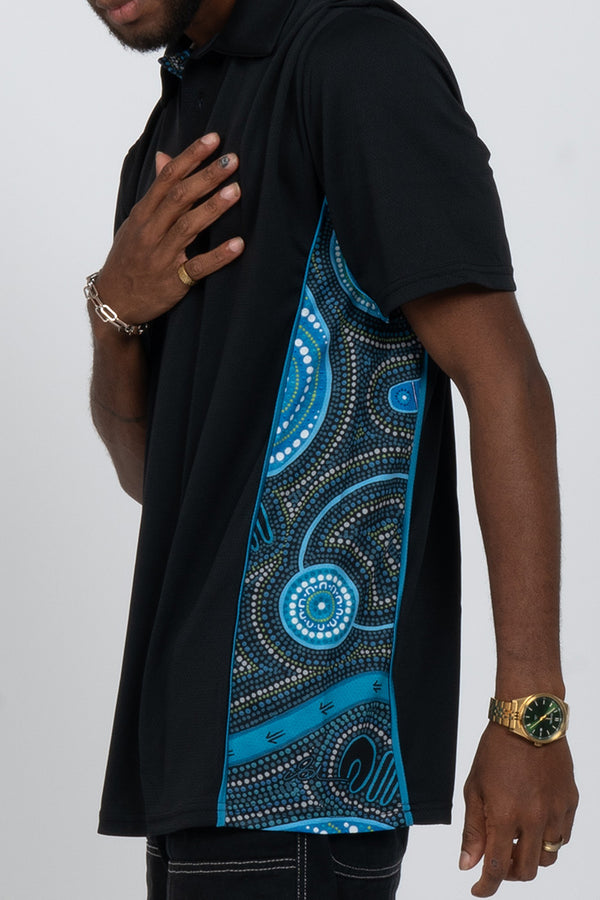Mabo Day
Aboriginal and Torres Strait Islander readers are advised that the following article contains images and information of people who have passed.
 Mabo Day Celebration. Courtesy of eventfinda, 2018.
Mabo Day Celebration. Courtesy of eventfinda, 2018.
Today is an important day, it is Mabo Day and also the last day of National Reconciliation Week. Mabo Day commemorates Mer Island man Eddie Koiki Mabo and his success in overturning the legal fiction that Australia was ‘terra nullius,’ meaning ‘land belonging to no one.’ Eddie Mabo was an incredible activist that brought about real change in this county. He spent 10 years battling the case and succeeded in convincing the High Court that Australian law was based on racial discrimination and completley false understandings. It was on June 3, 1992 that the historic decision came, sadly five months after Mabo’s death. The decision was that the ‘native title’ did exist and it was up to the people of Mer to determine who owned the land. This court ruling was not just about Mer, it introduced native title for all of Australia (Reconciliation Australia, 2020). Today, we pay tribute to the incredible man who was instrumental in bringing about this change.
Australia being deemed to be ‘terra nullius’ by the British was one of the most racist and destructive parts of Australian law. The system treated First Nations peoples as if they didn’t exist, showing a complete lack of recognition of the way they had lived on this continent for more than 60,000 years. The concept was that Australia and the Torres Strait Islands were not owned by Indigenous peoples because they did not use the land in ways that Europeans saw as legal possession (Reconciliation Australia, 2020). This completely disregarded Aboriginal and Torres Strait Islander peoples ownership of, and incredibly strong connection to Country. Aboriginal and Torres Strait Islander peoples way of life has always been entwined with Country. This High Court decision in 1992 was crucial as the case forced Australia to face the discrimination and inequality on which this nation was built upon.
 From left: Dave Passi, Eddie Mabo, barrister Bryan Keon-Cohen and James Rice outside the Queensland Supreme Court, 1989. Photo: Jim McEwan, Yarra Bank Films. Courtesy of National Museum Australia, 2021.
From left: Dave Passi, Eddie Mabo, barrister Bryan Keon-Cohen and James Rice outside the Queensland Supreme Court, 1989. Photo: Jim McEwan, Yarra Bank Films. Courtesy of National Museum Australia, 2021.
The impact of the Mabo case continues to live on today. It was following the Mabo decision that the Australian Federal Parliament passed the Native Title ACT in 1993, which established a legal framework for native title claims throughout Australia (Sydney Morning Herald, 2017). In 2015, 23 years later, Eddie Mabo was honoured by the Sydney Observatory through a star naming ceremony, it was a culturally significant moment in our nation's history (Reconciliation Australia, 2020). While the Native Title Act paved the way, so much change is still needed for us to become an equal and reconciled nation. There are many incredible activists like Mabo that continue to fight for social justice through constitutional change and a treaty.
 Mabo Day, one of the biggest events of the year in the Torres Strait. Image: Torres Strait Regional Authority. Courtesy of ABC News, 2020.
Mabo Day, one of the biggest events of the year in the Torres Strait. Image: Torres Strait Regional Authority. Courtesy of ABC News, 2020.
Today, the peoples of Mer Island will celebrate through feasts, dancing and singing. A full week of cultural activities takes place culminating in a celebration paying tribute to “Grandad Koiki” along with all of the other plaintiffs that were involved in the case (ABC News, 2020). They celebrate and remember those who fought long and hard for their land and culture. It’s not just a celebration for the people of Mer, it is a day of significance for all Australians. A celebration of a turning point in Australian history and a celebration of the man who gave his all to fighting for truth and social justice!



















